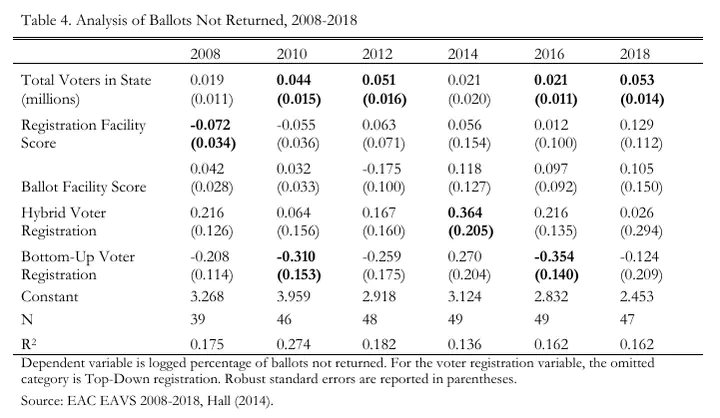
Abstract
Under the general framework of efforts to improve election administration in the United States in the aftermath of the debacle in Florida in 2000, Election Assistance Commission was established to prevent a repeat of administrative failures. The resulting federally-mandated data accumulation has afforded an unprecedented insight into the effect of election administration on the achievement of democratic ideals of competition and representation, namely for the electorate to be able to cast their ballot and their choice to be recorded correctly. The present study has three aims- First, the extant state of the knowledge regarding voting from abroad will be assessed and updated with the most recent data. Second, the pioneering multivariate analyses with the emerging data will be extended using the latest data. Third, new and more vigorous multivariate analysis will be offered making use of the new metrics that finally became available in 2018. The enduring problems with data collection will also briefly be illustrated. Therefore, the contribution of this study is in building a framework by extending the studies using the same kind of metrics, establishing a baseline and then taking the explanation one step further with the new metrics. The findings suggest that the new metrics do afford a higher level of explanatory power over the effect of election administration with respect to key outcomes in voting from abroad.